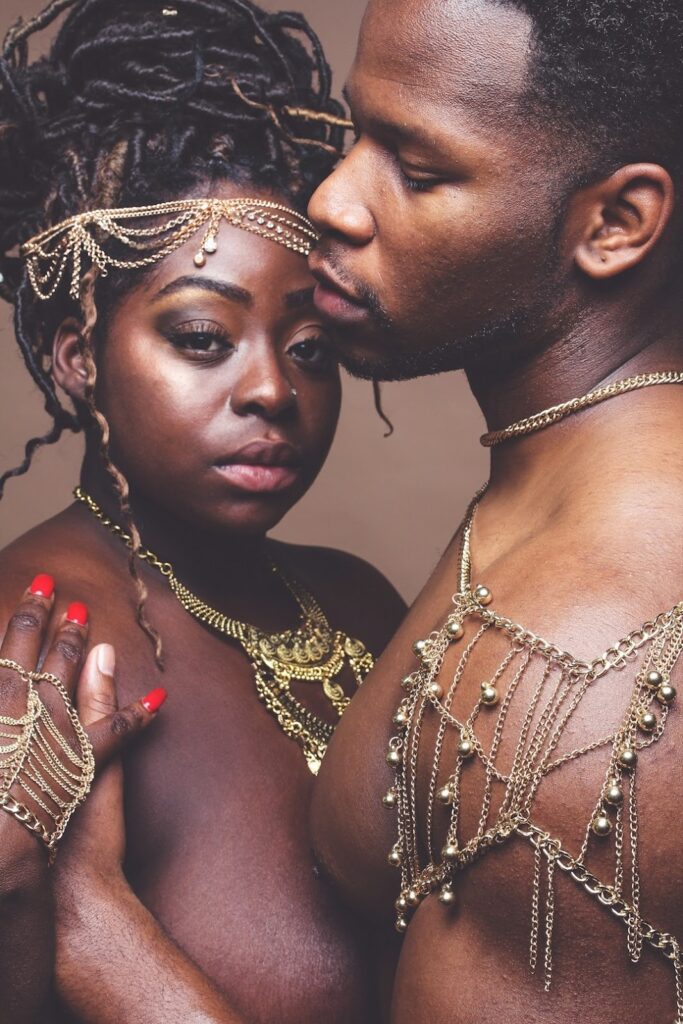Human relationships are complex, governed by a myriad of factors, from societal expectations to personal desires. They are shaped by past experiences, cultural backgrounds, and individual personality traits. When it comes to choosing a partner, it’s essential to discern what qualities are truly beneficial for a healthy and fulfilling relationship. This requires a deep understanding of not only what you need from a partner but also what you are willing to offer in return. The complexity of human relationships lies in their fluidity, adapting and evolving as individuals grow and change.
Read: Essential Qualities of an Ideal Boyfriend
Table of Contents
ToggleThe Intersection of Personal Desires and Societal Norms
Society has long dictated what constitutes an “ideal” partner, often prescribing traits that align with traditional gender roles. These societal norms can place undue pressure on individuals to conform to ideals that may not resonate with their true selves. However, as societal norms evolve, so too should our criteria for selecting a partner. It is imperative to look beyond superficial attributes and focus on characteristics that foster a genuine connection and mutual respect. Acknowledging this intersection allows individuals to make conscious choices that honor both their personal desires and the shifting cultural landscape.
Navigating Gender Dynamics
Gender dynamics play a pivotal role in shaping our perceptions of what makes a good partner. Historical stereotypes have often confined individuals to specific roles within relationships, limiting personal expression and growth. It is crucial to challenge these stereotypes and embrace qualities that transcend conventional gender roles, promoting equality and understanding in relationships. By recognizing and dismantling these dynamics, partners can create a more balanced and equitable relationship. This involves open communication and a willingness to redefine traditional roles, ensuring that both partners feel empowered and valued.
Top Qualities to Look for in a Partner

by Clarke Sanders (https://unsplash.com/@clarkecreates)
Emotional Intelligence
Emotional intelligence is perhaps the most vital quality in a partner. It encompasses the ability to understand and manage one’s own emotions, as well as empathize with the emotions of others. A partner with high emotional intelligence can handle conflicts with composure, avoiding the escalation of minor disagreements into major disputes. Partners with high emotional intelligence can navigate the inevitable challenges of a relationship with grace and understanding. This quality enhances the emotional connection between partners, fostering a deeper bond.
Communication Skills
Effective communication is the bedrock of any successful relationship. A partner who can articulate their thoughts and feelings clearly and listen actively is invaluable. This quality ensures that conflicts are resolved constructively, and both partners feel heard and valued. Moreover, effective communication facilitates the sharing of dreams, fears, and aspirations, creating a shared narrative that strengthens the relationship. It also enables partners to express their needs and boundaries, ensuring that both parties are comfortable and respected.
Mutual Respect and Support
A relationship thrives on mutual respect and support. This means valuing each other’s opinions, dreams, and individuality. A supportive partner encourages growth and celebrates achievements, while also providing a shoulder to lean on during difficult times. Mutual respect ensures that both partners are regarded as equals, with neither feeling superior or inferior. This balance of power fosters a healthy dynamic where both individuals can flourish and pursue their goals with confidence.
Shared Values and Goals
While differences can add spice to a relationship, shared values and goals create a strong foundation. It is important for partners to align on core beliefs and aspirations, as this alignment helps in making unified decisions and pursuing common objectives. Shared values provide a moral compass that guides the relationship, ensuring that both partners are moving in the same direction. This alignment also aids in overcoming challenges, as partners can rely on their common principles to navigate difficult situations.
Adaptability and Resilience
Life is unpredictable, and a partner who can adapt to change and bounce back from setbacks is a precious asset. Resilience in a partner ensures that the relationship can withstand the test of time and the various challenges that life throws its way. Adaptability allows partners to grow together, embracing new experiences and learning from mistakes. This quality is particularly important in today’s fast-paced world, where change is constant and often unavoidable. A resilient partnership can endure hardships and emerge stronger, fortified by shared experiences and mutual support.
The Role of Humor and Satire in Relationships

by Ben White (https://unsplash.com/@benwhitephotography)
Humor is often undervalued in relationships, yet it plays a critical role in fostering connection and alleviating tension. A partner who can laugh with you and even at themselves, brings lightness and joy into the relationship, making life’s burdens easier to bear. Humor can serve as a powerful bonding tool, creating moments of shared joy that strengthen the emotional connection between partners. It also provides a necessary escape from the stresses of daily life, offering a momentary reprieve from serious discussions or conflicts.
Using Humor to Navigate Conflict
Humor can diffuse tension and provide a fresh perspective during conflicts. It allows partners to approach issues with a sense of levity, preventing disagreements from escalating into serious arguments. By introducing humor into tense situations, partners can break the cycle of negativity and open the door to more constructive dialogue. This approach not only resolves conflicts but also reinforces the partnership, as it demonstrates a shared commitment to maintaining harmony and understanding.
Satire as a Tool for Reflection
Satire can serve as a mirror, reflecting societal norms and personal idiosyncrasies. In a relationship, being able to engage in satirical banter about each other’s quirks can foster intimacy and understanding. This playful critique encourages self-awareness and growth, as partners are gently reminded of their eccentricities in a loving manner. Satire also offers a safe space for exploring complex issues, allowing partners to address sensitive topics without fear of judgment or criticism.
Characteristics of a Healthy Relationship

by John Schnobrich (https://unsplash.com/@johnishappysometimes)
A healthy relationship is characterized by a balance of independence and togetherness, where both partners feel secure and valued. It is a dynamic union where each person can thrive individually while also contributing to a shared life. Here are some key characteristics:
Trust and Honesty
Trust is the cornerstone of a healthy relationship. Partners should be able to rely on each other and be honest about their feelings and actions. Transparency fosters trust, which in turn strengthens the bond. Honesty creates a safe environment where partners can share their vulnerabilities without fear of betrayal or judgment. This openness is essential for nurturing a deep and lasting connection, allowing both partners to feel secure in the relationship.
Independence and Interdependence
While being together is important, maintaining individual identities is equally crucial. A healthy relationship allows for personal growth and independence, while also fostering interdependence where partners support each other. This balance ensures that both individuals can pursue their passions and interests, contributing to a richer and more fulfilling partnership. Independence prevents codependency, while interdependence reinforces the partnership by highlighting the benefits of working together towards common goals.
Conflict Resolution Skills
Every relationship encounters conflict, but it’s how partners resolve these conflicts that define the quality of the relationship. Healthy relationships involve partners who can address issues calmly and work towards mutually beneficial solutions. Effective conflict resolution requires patience, empathy, and a willingness to compromise, ensuring that both parties feel heard and respected. By approaching conflicts as opportunities for growth, partners can strengthen their bond and deepen their understanding of each other.
Conclusion: What Makes a Good Partner?
In conclusion, the qualities that make a good partner extend beyond conventional attributes and delve into the realms of emotional intelligence, communication, mutual respect, shared values, and adaptability. These qualities are the foundation of a relationship that can withstand the test of time and evolve alongside societal changes. As society continues to evolve, so too should our understanding of what constitutes a healthy and fulfilling relationship. By embracing these essential qualities, individuals can cultivate partnerships that are not only rewarding but also reflective of modern values and gender dynamics.
Choosing a partner is a deeply personal decision, yet it is one that is intertwined with broader societal themes. By prioritizing these essential qualities, individuals can forge relationships that are both meaningful and enduring. Ultimately, a good partner is one who supports, challenges, and grows alongside you, creating a shared journey that is rich with love, laughter, and understanding. For more insights on relationship expectations and compatibility, visit Male Delusion Calculator to explore a unique perspective on dating preferences.




